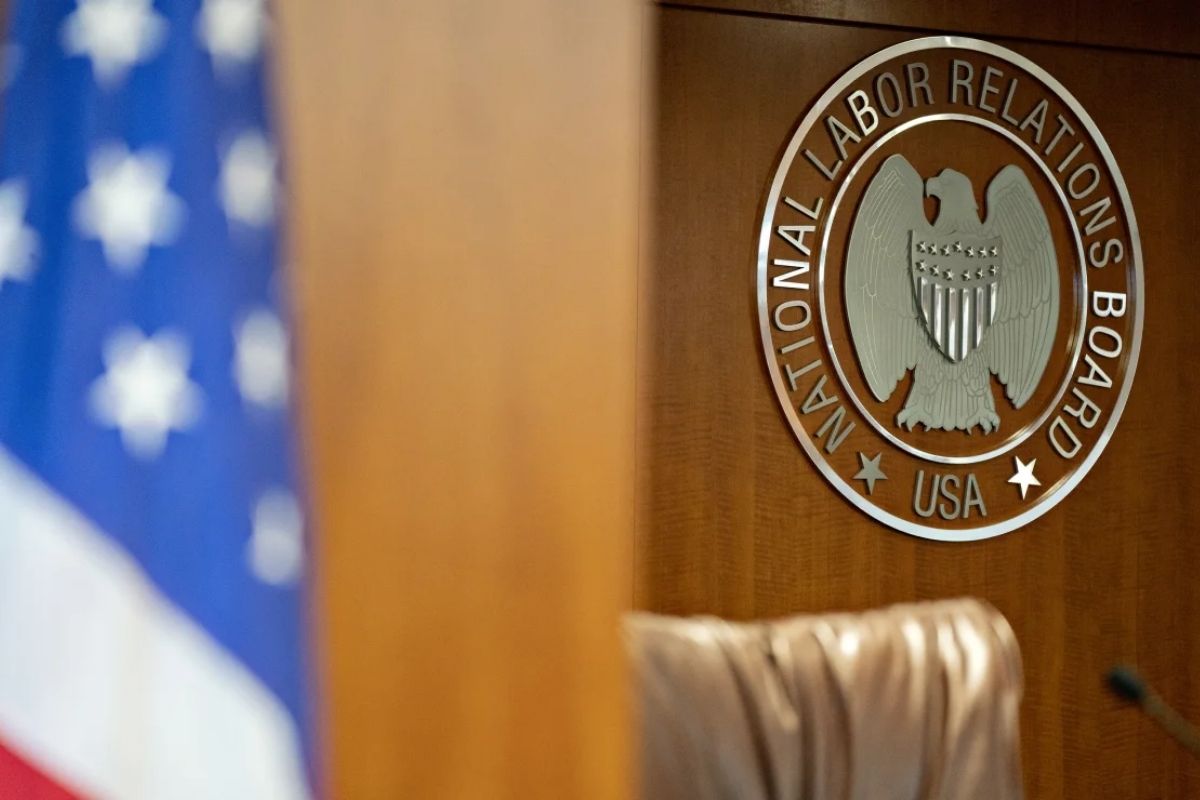The National Labor Relations Board (NLRB), the independent agency responsible for enforcing labor laws for most American workers, has been effectively shut down after President Donald Trump fired one of its board members, leaving it without the quorum needed to function.
The NLRB oversees union elections and investigates unfair labor practice complaints, such as retaliatory firings against pro-union workers. Out of the five board seats, two were already vacant due to expired terms.
Trump’s unprecedented dismissal of a third board member has now rendered the agency unable to form the simple majority required for decisions, effectively leaving it inactive.
“This is great for employers — they have a nonfunctioning NLRB,” said Cathy Creighton, a former NLRB attorney during the Clinton administration and director of Cornell University’s School of Industrial and Labor Relations co-lab in Buffalo, New York.
Established 90 years ago, the NLRB played a crucial role in the growth of private-sector unions in the mid-20th century.
However, in recent years, it has presided over the decline of union representation in U.S. businesses, as its enforcement powers have been curtailed by conservative courts and lawmakers keen to appease corporate interests.
Despite these limitations, the agency remained a thorn in the side of some of the wealthiest and most powerful figures in the country—most notably Elon Musk, a key financial and political supporter of Trump.
With Trump effectively dismantling the board, its already limited powers have, at least temporarily, been eliminated.
The absence of a quorum at the NLRB, along with Trump’s actions against officials he perceives as anti-employer, has raised concerns among labor advocates.
Critics of the move point to Musk’s influence, arguing that this was not a tactic Trump employed during his first term.
“The NLRB is probably at the top of Musk’s list of agencies he wants to destroy,” said Adam Shah, director of national policy at Jobs With Justice, a labor rights organization.
While Musk has not publicly taken credit, he acted even before the 2024 election to undermine the agency.
Musk’s company, SpaceX, filed a federal lawsuit last year challenging the constitutionality of the NLRB and seeking to prevent it from acting on unfair labor practice complaints. The suit aimed to block the agency from taking action against SpaceX for firing employees. Nine SpaceX workers had alleged they were dismissed after writing a letter urging management to publicly condemn Musk’s “harmful” behavior on social media.
Musk’s Tesla has also faced NLRB complaints over its handling of unionization efforts, including after Musk tweeted that employees who joined a union would lose their stock options.
Neither SpaceX nor Tesla responded to requests for comment.
“It wasn’t Trump who filed the lawsuit against the board challenging its constitutionality,” Shah noted. “It was Elon Musk.”
And Musk is not the only one. In recent years, Amazon has also sued over the NLRB’s authority, while continuing to contest the results of a 2022 union election at one of its facilities—marking the first successful unionization effort among its U.S. workers.

The Impact of an Inactive Board
The NLRB has not clarified whether the Trump administration intends to appoint the board members necessary to restore a three-member quorum. However, in a statement, the agency noted that its regional directors and investigators are still reviewing complaints of unfair labor practices.
But without a functioning board, employers do not have to worry about labor laws being enforced, even if agency investigators and judges find violations.
For example, at an Amazon facility in Bessemer, Alabama, a union lost two representation votes. However, an NLRB administrative judge later ruled that Amazon had violated laws ensuring a fair election during the second vote, ordering a third election.
Amazon has appealed that ruling, and the case was supposed to go before the full board to determine the next steps. Without a quorum, Amazon faces no immediate pressure for another vote.
Amazon also did not respond to a request for comment.
Trump has positioned himself as a champion of blue-collar workers and has nominated one of the most pro-union Republicans in Congress, Lori Chavez-DeRemer, as his Secretary of Labor. However, his decision to fire NLRB member Gwynne Wilcox signals his intent to make the agency as pro-management as possible.
The letter informing Wilcox of her termination stated that she was dismissed because her record showed she “unduly disfavored the interests of employers large and small.”
Among the rules introduced by Wilcox and other Biden-era appointees that Trump criticized was one restricting employers from holding so-called “captive audience” meetings—mandatory sessions in which workers are urged to vote against unionization under threat of job loss.
The Trump administration’s letter contended that this rule improperly limited “employers’ rights to speak on the subject of unionization,” raising First Amendment concerns about restricting employer speech.
Biden appointees had also implemented a rule strengthening employers’ obligation to negotiate with unions, even in cases where a union had not yet won an election.
Rather than appointing new board members who would overturn these pro-union policies, Trump has left the board nonfunctional, preventing it from defending workers against corporate challenges in court.
A Win for Employers, Despite Uncertainty
The absence of a quorum is not an absolute victory for employers, according to Michael Lebowich, a partner at the law firm Proskauer, which represents employers in labor cases.
Uncertainty is generally bad for business, he noted.
“In the short term, there is relief from some aspects of the Biden board’s decisions,” said Lebowich. “The fact that these cases cannot be enforced is, overall, a positive development from a management perspective. But long-term uncertainty is not beneficial for businesses. You won’t see cases overturned until a board is reconstituted.”
Some companies may still feel obligated to comply with existing union-friendly regulations, even without an active board to enforce them.
“From a compliance standpoint, disregarding the law is not advisable,” Lebowich said, though he declined to comment specifically on the SpaceX case.
SpaceX’s lawsuit contends that the NLRB is unconstitutional because its rules prevent the president from firing board members or administrative law judges who oversee labor disputes. Under the National Labor Relations Act, board members can only be removed “upon notice and hearing, for neglect of duty or malfeasance in office, but for no other cause.”
The lack of a quorum may have already handed SpaceX a legal victory. An NLRB attorney recently informed the court handling the case that the agency could no longer defend itself against SpaceX’s constitutional challenge due to its inability to reach a quorum.
However, even if the court sides with SpaceX, experts like Creighton and Lebowich agree that it would not necessarily dismantle the agency entirely.
“It doesn’t mean shutting off the lights,” said Creighton. “But it does significantly weaken the NLRB.”
Fired Board Member Fights Back
Wilcox is the first NLRB member in the agency’s 90-year history to be fired. She was also the first woman and first Black board member to serve as chair.
She has since taken legal action to reclaim her seat, arguing that she was dismissed without the required notice or hearing. The termination letter made no accusations of neglect or malfeasance.
Even some conservative attorneys who have previously opposed labor laws question whether Trump has the authority to fire sitting NLRB members.
Richard Epstein, a law professor at New York University, believes collective bargaining agreements are inherently “coercive.”
“But Trump is trying to dismantle the entire independent commission system,” Epstein said. “He didn’t just want to appoint two people aligned with his views—he wants to eliminate the NLRB entirely. I hope he loses this case. Institutional stability matters.”


